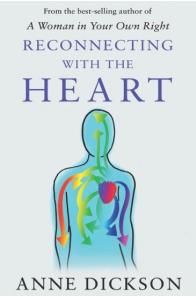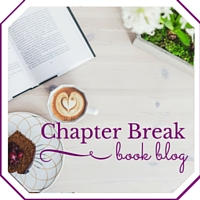Guest Post: Anne Dickson
The story behind Reconnecting With The Heart
Whether teaching assertiveness, interactive communication, running sexuality groups or training women in leadership, I have found in all my work over the years that participants always struggle to deal with their feelings. The whole emotional realm tends to make us uncomfortable so there is a lot of confusion and there are many, many questions. How do I recognise what I am feeling? Do I say anything or keep quiet? Aren’t some feelings harmful and best hidden away? Isn’t showing feelings a sign of weakness? Isn’t anger the same as aggression? What are the links between unexpressed emotion and physical illness? How can I stop being anxious?
It is in response to these and many other questions that I have written Reconnecting with the Heart because I have learned over and over again that when individuals are given answers to these concerns about emotion they are able to be more mindful and to communicate much more effectively in all their relationships. I wanted to write a book that would provide this kind of information in the hope that its accessible style would encourage readers of all kinds to respond to emotion in their own lives with less dread and more trust.
Reconnecting with the Heart sheds light on what feelings are and where they come from: why they seem sometimes to appear without warning; why we overreact to something quite trivial; what is really going on when we burst into tears or fly off the handle inappropriately? How can we recognise when feelings are building up inside and what we can do instead of simply reaching for drugs or food or alcohol to reduce the bodily sensations? What is the difference between sadness and depression?
Among other things, readers will learn that the true nature of grief is cyclical, not an experience that can be expected to decline in rational stages; that anger is as necessary as the emotion of love because it helps keep physical and psychological boundaries in tact; that anxiety can be both a helpful prompt to take action but also a disabling and repetitive pattern which stops us living life to the full.
There are guidelines as to how to recognise what you are feeling and then how to proceed: do you acknowledge it privately to yourself or do you choose to put your feelings into words? We can all learn how to communicate even difficult feelings without being aggressive and blaming the other person. There is also guidance about what and how to teach children about emotions so that they can learn to express themselves clearly.
My hope is that readers will not only better understand their own emotions but also be more comfortable when others are in distress, not turning away in disapproval or embarrassment but being able to give quiet support. Reconnecting with the Heart can help readers to replace the negativity around emotion with personal awareness and to realise that emotional well-being is just as important as physical and mental health.
 Title: Reconnecting With The Heart
Title: Reconnecting With The Heart
Author: Anne Dickson
Expected Publication: Feb 28, 2015
Blurb: Reconnecting With The Heart offers a framework for understanding what feelings are, how they differ and where they come from. It challenges the conviction that we are displaying weakness if we show our feelings. This is a practical guide to recognising when our emotions are reaching critical levels so we can address them before they reach crisis point. Anne Dickson answers a host of questions about feelings, such as why is it that emotions seem to ambush us without any warning? What is happening when we wildly overreact to a seemingly trivial issue? Are there any links between physical illness and unexpressed emotion?
The reader is encouraged to be less afraid of the experience of emotion and become more spontaneous in acknowledging all feelings. Reconnecting With The Heart helps you to better relate your emotions to other people, and offers guidance as to how and when to express even the most difficult feelings, instead of letting them build up and interfere with relationships. Understanding our own feelings helps us to build empathy and feel more comfortable with the feelings of others too, instead of turning away in embarrassment, or scolding a child’s anger because we are fearful of expressing our own emotions.
About the Author, Anne Dickson
My commitment and passion have always been to equality, honesty and nonaggression: through both the facilitation of classes, workshops and ongoing courses in an extraordinarily diverse range of contexts and cultures and also through my books, I have attempted to teach and encourage others who are similarly interested in upholding these same values.
The key to what I do – and what I have always done – is authentic communication as the basis of sincere relationship whether that is with our nearest and dearest, with colleagues, with friends or with those we hardly know. Taking responsibility for what we want (or don’t want) and for how we express ourselves requires sensitivity to the requirements of love for oneself and others. How do we balance these needs? How do we learn to set limits and say ‘no’ in unclear relationships? Are we happy with the quality of our relationships? Which people do we really want around us? How can we handle conflict and tension in ways that respect different viewpoints and needs instead of solely aiming for a win/lose outcome? How do we break out of old habits of fear and conditioning and learn to find our real inner voice?
My personal and professional commitment though goes far beyond the limits of self-development for the sake of self-development. Equality, honesty and nonaggression stand in stark contrast to prevailing cultural norms of individualism, competition, dishonesty and aggression. Setting up this website is an attempt to reach out and establish contact with others who also find it hard to maintain these values in today’s world: who are keen to promote equality and compassion and an alternative to those models of power we see all around us which continue to do untold harm at every level of existence.
Note: Some posts may contain affiliate links. Should you choose to purchase a product, we will receive a small commission for the sale at no additional cost to you. Chapter Break is a participant in the Amazon Services LLC Associates Program, an affiliate advertising program designed to provide a means for sites to earn advertising fees by advertising and linking to Amazon.com.



I’ll be the first to admit that I am horrible with voicing my feelings, and can use all of the help I can possibly get, so this book sounds perfect for me. I don’t know how much it’ll enlighten me, but I’m willing to give it a shot because I have to start somewhere.
Carmel @ Rabid Reads recently posted…Early Review: Black Widow by Jenifer Estep